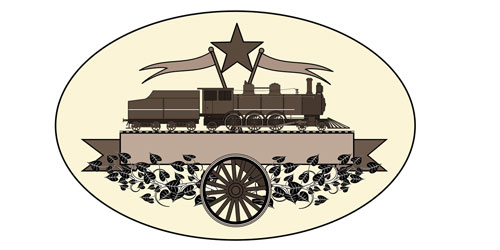《论语诠解英文版》——Chapter XI"颜渊" (Yan Yuan)
The chapter has 24 sections and focuses on, among other topics, 仁 Ren, 君子Junzi, and 礼 Li. Some of the most frequently quoted Confucian maxims are from this chapter, for example:
"己所不欲, 勿施千人 jT su6 bu yu, wu shT yu 伦 n ." (What you do not desire, you do not impose on others.)
“君子成人之美, 不成人之恶 jun zT c h的 g 诧n zhT m色i, bu c h的 g r的zhT e." (The noble man of true virtue seeks to facilitate the completion of other people's good intentions, but not bad ones.)
冯 8 “四海之内, 皆兄弟也 s1 hai zhT nei, jie xi6ng di y色" (All people under Heaven are brothers.)
“克己复礼为仁 ke jT fu IT w令 r的 ." (To restram oneself and conduct one- self in accordance with the rites of propriety is true virtue.)
“非礼勿视, 非礼勿听 fe i IT WU sh], fe i『 wu ting." (Do not watch what is contrary to the rites of propriety. Do not listen to what is contrary to the rites of propriety.)
[12- 1] 颜渊问仁。子曰 : “ 克己复礼为仁。一日克己复礼, 天下归仁焉。为仁由己,而由人乎哉?”
颜渊曰: “请问其目。“子曰: “非礼 勿视, 非礼勿听, 非礼勿言, 非礼勿动。"
颜渊曰: “回虽不敏,请事斯语矣。"
12.1 Yan Yuan asked about true virtue. The Master said, "To restrain oneself and conduct oneself in accordance with the rites of propriety is true virtue. When one's conduct fully accords with the rites of propriety, all people under Heaven will rally around true virtue. A man can obtain true virtue through his own efforts. He does not rely upon others for it, does he?"
Yan Yuan asked further, "How can this be done?" The Master said, "Do not watch what is contrary to the rites of propriety. Do not listen to what is con trary to the rites of propriety, nor speak and practice what is contrary to the rites of propriety." Yan Yuan replied, "Though I am not an intelligent person, I will practice as you instruct me."
[Comment]“克己 ke jl" means "to restrain oneself, " while "归仁 g u1 ren" implies "to strive for "仁 怡n" and therefore obtain 仁 Ren." "由己 y6 u jT" connotes "rely upon oneself." "事 s h1" can be translated as both "practice" and "to put into practice."
[Reading] In this section Confucius discussed "仁 Ren," which is one of the principle concepts of Confucianism. According to him, the core value of " 仁Ren" is to "克己复礼 ke jT fu IT " (To restrain oneself and conduct oneself in accordance with the rites of propriety). This remark says two things. First, self-restraint and self-discipline, which are moral requirements one imposes on oneself. But these can be fulfilled only when one aligns himself with "1L Li" (the rites of propriety), which are moral requirements imposed externally by society. Confucius insisted that only "when one's conduct fully accords with the rites of propriety, (will) all people under heaven rally around true virtue." Equally important, Confucius believed, are one's willpower and commitment to realizing this goal. "A man can obtain true virtue through his own efforts. He does not rely upon others for it, does he?" Yan Yuan was thus regarded by Confucius as an exemplary embodiment of both "1 二 Ren" and "礼 Li."
[12- 2] 仲弓问仁。子曰:“出 门 如 见 大 宾 ,使 民 如 承 大 祭。己所不欲, 勿施千人。在邦无怨,在家无怨。"仲弓曰:"雍虽不敏,请事斯语矣。”
12.2 Zhonggong asked about true virtue. The Master said, "When you go out, act as if you were meeting a distinguished guest. When you employ peo ple, behave as if you were hosting an important sacrificial ceremony. What you do not desire, you do not impose on others. Serving a prince or duke in a state, you incur no resentments. Serving a minister in his residence, you incur no antagonism." Zhonggong said, "Although I am not an intelligent person, I will do as you instruct me."
[Comment] "大宾 do bTn" describes a "distinguished guest," while " 承 c h的 g" connotes "to be committed to." " 在邦 za i bang" implies "serving a prince at a state" and "在家 za i jia" suggests "serving a minister in his resi dence."
[Reading] In his conversation with Zhonggong, another major disciple, Confucius furthered his discussion of " 仁 Ren" by emphasizing the impor tance of being sincere and respectful in social interactions. More important- ly, Confucius urged Zhonggong to "己所不欲, 勿施千人 jT su6 bu yu, WU shT yu r的 " (What you do not desire, you do not impose on others), which is similar to the Christian Golden Rule, "Do to others as you would have them do to you" (Luke 6:31, New International Version), although the Confucian maxim was created several centuries earlier.
[12- 3] 司马牛问仁。子曰: “仁者,其言也切。"曰: “其言也切,斯谓之仁己乎?“子曰: “为之难,言之得无切乎?”
12.3 Sima Niu asked about true virtue. The Master said, "The man of true virtue speaks with caution." Sima Niu said, "Are you suggesting that true
241 virtue is simply to speak with caution?" The Master said, "To do things is already challenging, so how can one not speak with caution?"
[Com ment] " 司马牛 SI ma niu" was a disciple of Confucius, whose Sur- name was " 司马sT ma," and who held a courtesy name of " 子牛 zT ni u." '初 ren" translates as "do not speak casually, do not talk easily."
[Reading] Another important aspect of " 仁 Ren" Confucius repeatedly emphasized is " 慎 言 s he n y6n" (to speak with caution). According to Confucius, "君子Junz i" is "diligent in what he is doing and cautious in his speech" (Section 14, Chapter I). He is "cautious with his words and is diligent in his action" (Section 24, Chapter IV). For example, when Zigong asked what distinguished "君子 Junzi," the Master said, "He acts before he speaks and then speaks in accordance with what he acts" (Section 13, Chap ter II). Elsewhere in Chapter XIV, the Master reminded his disciples, "The noble man is ashamed of speaking more but doing less" (Section 27, Chapter 14). In Chapter 4, the Master also admonished, "The ancients never prom ised easily. This is because they regarded it as a shame not to be able to live up to their words" (Section 22, Chapter IV). When asked by Zizhang about how to attain an office with emolument, Confucius said, "Listen more and keep to yourself those you doubt. Cautiously discuss things about which you are certain. Thus, you will be able to avoid mistakes" (Section 18, Chapter II). For Confucius, one can never overemphasize the importance of match ing one's words with his actions.
[12- 4] 司马牛问君子。子曰: “君子不忧不惧。"曰: “不忧不惧,斯谓之君子巳乎?”子曰: “内省不疚,夫何忧何惧?”
12.4 Sima Niu asked about what makes a noble man of true virtue. The Mas ter said, "A noble man of true virtue does not have anxiety or fear." Sima Niu further asked, "Having no anxiety or fear, is that all it takes to qualify as a man of true virtue?" The Master said, "If he reflects upon himself yet finds nothing to be ashamed of, what does he have to be anxious about and what does he have to fear?"
[Comment] "内省不疚 n创 xTng bu jiu" indicates that one has "reflected on himself and not felt guilty."
[Reading] In response to Sima Niu's question regarding what makes " 君子Junzi," Confucius focused on the importance of reflective consciousness. He said that "君子 Junz i" frequently reflects on himself to check if he acts in accordance with the moral principles and the rites of propriety (Section 4, Chapter I). If, upon self-examination and self-reflection, one does not feel guilty and "finds nothing to be ashamed of, what does he have to be anxious about and what does he have to fear?"
[12- 5] 司马牛忧曰: “人皆有兄弟,我独亡!”子夏曰: “商闻之矣:死生有命,富贵在天。君子敬而无失,与人恭而有礼。四海之内, 皆兄弟也。君子何患乎无兄弟也?”
12.5 Sima Niu said worriedly, "All have brothers except me." Zixia said, "I have heard the Master say that life and death are determined by fate, wealth and honor are disposed by Heaven. When the man of true virtue cautiously behaves himself to avoid e盯 or, when he is respectful and courteous tooth ers, then all people under Heaven are his brothers. Why should he be anx ious about not having brothers?"
[Comment] " 亡 w u" is used interchangeably with " 无 wu" to mean "none." "商s ha ng " refers to " 子夏 zT xia," while " 敬 j1ng " connotes "self-discipline."
[Reading] It is traditionally believed that Sima Niu was the younger brother of " 桓魁Huan Tui," who was a chief minister in the State of Song. He was involved in a revolt and was forced to flee the country, as was Sima Niu. Because his notorious brother once also planned to do harm to Confucius, Sima Niu pretended that he never had such a brother. That is why he said, "All have brothers except me." Nonetheless, Zixia comforted him by quot ing the Master: "When the man of true virtue cautiously behaves himself to avoid error, when he is respectful and courteous to others, then all people under Heaven are his brothers." Obviously, the emphasis, as in the previous discussions, is on " 仁 Ren" and virtuous actions.
[12- 6] 子张问明。子曰 : "浸润之谐,肤受之恕,不行焉,可谓明也已矣。浸润之谐,肤受之恕,不行焉,可谓远也已矣。"
12.6 Zizhang asked what constitutes insight. The Master said, "He, who is not impacted by slander that penetrates like water-he, who is not impacted by defamation that hurts like a wound-has insight. Certainly, he, who is not impacted by slander that penetrates like water and is not impacted by defa mation that hurts like a wound, can be called farsighted."
[Comment] "浸润 jln run" translates as "water slowly permeating and pen etrating everywhere." "恕s u" connotes "slander," while "明 mfng" means "to be able to distinguish between what is right and what is wrong." In broader sense, it may also imply "to encounter a wise man who can serve as a guide and mentor." "远 yua n" implies "farseeing, have a big vision."
[Reading] According to Confucius, " 君 子 Junzi" is a man of perfect virtue. Precisely because of this, "君子Jun之i" is also a man of insight. He is capa ble of discerning the underlying truth of anything, thus being able to help solve a problem. This ability is, as Confucius understood it, enhanced by "1 二Ren" and moral principles that enable one to distinguish between what is right and what is wrong.
[12- 7] 子贡问政。子曰: “足食,足兵,民信之矣。"
子贡曰: “必 不得已而去, 千斯三者何先?” 曰: “去兵。"
子贡曰: “必 不得已而去, 千期二者何先?” 曰: “去食。自古皆有死,民无信不立。"
12.7 Zigong asked about the way of governing. The Master said, "Have sufficient food, sufficient weapons, and the confidence of the people. That is all!" Zigong asked further, "If you have no choice but to keep only two, which of the three would you dispose of?" The Master said, "The weapons." Again, Zigong asked, "If you have to dispose of one of the remaining two, which one you would do without?" The Master said, "The food. From times of old, death has been the lot of all rulers. However, they would not be in power if the people had no faith in them."
[Reading] Of the three conditions essential to the survival of a country, "sufficient food, sufficient weapons, and the confidence of the people," Confucius believed that the last one, the confidence of the people, was the most important. This emphasis on the importance of people's confidence in a government is based on Confucius'understanding of " 仁 Ren" and moral disposition as the only effective way of governing a state. According to Xun Zi (313-238 BC), Duke Ai of Lu (495-467) consulted Confucius about the art of governing. Confucius said that the prince is like a boat, and the people are like the water. "While water can carry the boat, it can also capsize the boat."(《荀子· 哀公》 Xunzi • Duke Ai of Lu) The importance of people's trust and confidence in a government was also discussed by Mencius when he argued that "in any country, the people are the most important. Next are the spirits of land and grain (which was later extended to refer to a country in a metaphorical sense); the prince counts for the least."(《孟子·尽心下》Chapter XIV, Book 14 of The Mencius·Jin Xin Xia)
[12- 8] 棘子成曰:“ 君子质而已矣, 何以文为?” 子贡曰:"惜 乎,夫子之说君子也,驸不及舌。文犹质也,质犹文也。虎豹之桴犹犬羊 之桴。"
12.8 Ji Zicheng said, "What matters most to the man of true virtue is sub stance, but not external refinement." Zigong said, "Sir, I am afraid you are wrong in this account. What you just spoke cannot possibly be chased back even by a carriage of four horses! Substance and external refinement are equally important. There is not much difference between the hides of a tiger and leopard and those of a dog and sheep, if they are all stripped of their hair, is there not?"
[Comment] "棘子成 jf zT c 陡 ng" was a minister in the State of Wei, who was mentioned only once in the Analects. " 质 zh]" describes "the nature of something." " 文 w 的 " connotes"decoration." " 驸 s1" refers to "a carriage driven by four horses," while 嗤 享 kuo " refers to "an animal's hide stripped of its hair."
[Reading] This section focuses on the issues of substance and appearance (external refinement). For Confucius, as argued eloquently by Zigong, "Sub stance and external refinement are equally important." It is imperative that one should not be promoted at the expense of the other. Otherwise, "There is not much difference between the hides of a tiger and leopard and those of a dog and sheep if they are all stripped of their hair, is there not?"
[12- 9] 哀公问千有若曰: “年饥,用不足,如之何?”有若对曰:
"盎彻乎?”
曰: “二,吾犹不足,如之何其彻也?”对曰: “百姓足,君孰与不足?百姓不足,君孰与足?”
12.9 Duke Ai asked You Ruo, "Due to famine this year, there are not suf ficient revenues for the management of the state. What is to be done?" You Ruo answered, "Why can you not tithe the people?" The Duke said, "I cannot get enough with the current two tenths, how could I get by with only one tenth?" You Ruo said, "If the people have enough, how can you as their prince be left destitute? If the people are deficient, how can you enjoy abundance?"
[Com ment] " 饥 jT'' means "famine, little or no harvest." " 彻 c he" refers to an ancient tax format of tithe, which was 10 percent. "二 e r" refers to its double, an ancient tax format of two tenths.
[Reading] It is interesting to note that the core value of Confucian thought is, among others, to "enrich people" before "enriching the throne." You Ruo, a disciple of Confucius, advised Duke Ai of Lu to give his people a tax break so as to relieve them of heavy tax liability. When the people became rich, he argued, the state would have abundance to enjoy. A country's economy would suffer if its people had nothing to contribute because of poverty.
[12- 10] 子张问崇德辨惑。子曰: “主忠信,徙义,崇德也。爱之欲其生,恶之欲其死。既欲其生,又欲其死,是惑也。 `诚不以富, 亦祗以异。'"
12.10 Zizhang asked how to enhance virtue and dispel perplexity. The Mas ter said, "Befriending men of faithfulness and sincerity and basing oneself in morality and trust, one's virtue can thus be enhanced. When we love a man, we wish that he live longer. When we dislike a man, we wish that he die soon. That we both wish a man to live longer and wish him to die sooner is an extreme case of perplexity. Obviously, this is not good for us. It only makes people believe we are strange."
[Comment] " 崇 德 辨 惑 c h6 ng de bian huo" translates as "to enhance virtues so as to be able to dispel confusion." "徙义 xT y1" describes one who is "in pursuit of ethical values."
[Reading] In this section, Confucius focused on two important aspects of individual moral development: enhancing virtue and dispelling perplexity. To enhance virtue is to remain faithful, sincere, and trustworthy by consci entiously observing moral principles and acting accordingly. By perplexity, Confucius referred to any emotion-driven or irrationality-driven behavior: unreasonable love and/or hate which are caused primarily by the confu sion and uncertainty one feels when unable to distinguish between right and wrong.
[12- 11] 齐景公问政千孔子。孔子对曰:“ 君君、臣臣、父父、子子。” 公曰: “善哉!信如君不君、臣不臣、父不父、子不子,虽有粟,
吾得而食诸?”
12.11 Duke Jing of Qi asked the Master about government. The Master said, "For a government to be a good one, the prince should be prince, embody ing true virtue; the minister should be minister, embodying perfect deference; the father should be father, embodying love and kindness, and the son should be son, embodying filial piety." Duke Jing of Qi said, "How true! When the prince does not act like a prince, the minister not a minister, the father not a father, and the son not a son, even if I have plenty of food, can I enjoy it?"
[Com ment] " 齐 景 公 qi jTng gong" refers to "the Prince of the State of Qi during the Spring and Autumn Period (771-403 BC), whose name was 姜忤臼 jia ng chu ji u.' " " 信如 xln ru" means "to assume, on the assumption."
[Reading] This section focuses on Confucius'idea of good governance. As the result of the Quanrongs'(a non-Han ethnic group) invasion of North western China, the Zhou Dynasty (1046-256 BC) was forced to move its capital to Luoyi, an eastern part of China, marking the beginning of the Eastern Zhou (770-256 BC). The latter itself was divided into two major periods: the Spring and Autumn Period (770 BC-476 BC), in which Con fucius lived, and the Warring States Period (476 BC-221 BC). During the Eastern Zhou while the Zhou court was still in place, albeit very weak, the feudal system of social hierarchy had become increasingly irrelevant. As a result, the fiefdoms awarded to royal relatives and generals by the Zhou kings in hopes of preserving their control over the territory were increasing ly transformed into independent states, competing for political power in the name of hegemon. While these states engaged in an intriguing power strug gle amongst themselves, each vassal state was also bogged down in its own internal conflict. Parricide, regicide, treachery, betrayal, and usurpation were rampant. Amid such sociopolitical chaos, Confucius wished to restore social order by reinstituting the Zhou rules of propriety. One of the most important things to do, as he advised the Prince of the State of Qi, was that "the prince should be prince, embodying true virtue; the minister should be minister, embodying perfect deference; the father should be father, embodying love and kindness, and the son should be son, embodying filial piety."
[12- 12] 子曰: " 片言可以折狱者, 其由也与!” 子路无宿诺。
12.12 The Master said, "Zilu is probably the only one who is able to set litigations with a one-sided view." He would never break his promise and would always fulfill it quickly.
[Comment] "片幸 P沁n yo,n" translates as a "one-sided view," while " 宿 su" implies "to stay for a long time."
[Reading] Confucius seemed to be impressed by Zhong You's ability to discern the underlying truth of a situation, enabling him to distinguish be tween what is right and what is wrong. Furthermore, Zhong You never broke a promise and always honored his words.
[12- 13] 子曰: “听讼,吾犹人也。必也使无讼乎!”
12.13 The Master said, "I am no different from others when hearing law suits. But it would be better to have no lawsuits among people."
[Com ment] "听讼 ting song" means "to hear lawsuits."
[Reading] It is interesting to note that while Confucius emphasized the importance of recompensing injury with justice (lawsuit is one form of such recompensing) (Section 34, Chapter XIV), he also advocated what is regard ed as "preventive law" in today's legal principles. That is, it is more impor tant to avoid legal problems by providing "healthy legal well-being." In his words, "It would be better to have no lawsuits among people."
[12- 14] 子张问 政。子曰: “居之无倦,行之以忠。"
12.14 Zizhang asked about government. The Master said, "It is to govern diligently without ennui and be faithful and sincere while executing admin istrative orders."
[Com ment] " 居 ju" execute orders." means ".m a high position" and_" , 钉, xf ng" connotes "to
[Reading] To govern with moral principles is one major aspect of the Con fucian " 仁 Ren" . For Confucius, a good official is always diligent, assidu ous, and industrious about government work and has faith in the virtue of hard work. He conducts himself in accordance with moral codes and remains trustworthy and sincere. To quote Zeng Zi's words, "I daily examine myself to see whether I may not have been faithful and dutiful enough when I do things for others, whether I may not have been truthful enough to my words when I interact with my friends." (Section 4, Chapter I)
[12- 15] 子曰: “博学千文,约之以礼,亦可以弗畔矣夫!”
12.15 The Master said, "One may not deviate from the right track, if one studies all kinds of learning (including Classic of Changes, Classic of Odes, Book of Documents, Book of Rites, Book of Music, Spring and Autumn An nals) and restrains himself within the rites of propriety."
[Comment] Here "文 w的 " refers to classics including "六艺 liu yl" (the Six Arts: rites, music, archery, charioteering, calligraphy, and mathematics). "畔pa n" is used interchangeably with "叛 pa n" to indicate "betrayal."
[Reading] This section repeats what Confucius said in Chapter VI. For Con fucius, the objective of learning is to study all kinds of useful knowledge, including the Six Arts. But that by itself is not enough. Only when one disci plines himself with the rites of propriety can he not deviate from the Way.
[12- 16] 子曰: “君子成人之美,不成人之恶。小人反是。"
12.16 The Master said, "The noble man of true virtue seeks to facilitate the completing of other people's good intentions, but not bad ones. The inferior man does just the opposite."
[Comment] "成 c h的 g" means "to make perfect."
[Reading] In this section, Confucius discussed qualities that distinguish a
“君子Junz i" from a "小人 xiaoren (the mean person)." Residing at the core of Confucianism is an all-embracing humanism that respects and values hu man beings. For example, in response to Zigong's question of whether there is a life-long guiding principle we should all value, Confucius said, "It is reciprocity." "己所不欲, 勿施千人 jT su6 bu yu, wu shT yu r 的 ." (What you do not desire, you do not impose on others.) (Section 24, Chapter XV) This is similar to the Golden Rule, "Do to others as you would have them do to you." (Luke 6:31, New International Version) In helping others, we help ourselves. This is what Confucius meant by "reciprocity." Thus, Confucius argued that a noble man of true virtue is one who "已欲立而立人,已欲达而达人 jT yu 11 er 11 r的 ,jT yu d6 er d6 沦n" (while seeking to establish himself, also sees that others are established). Furthermore, the noble man "judges others by the same means with which he judges himself." (Section 30, Chapter VI) That, according to Confucius, is perfect virtue. Howevet,'the inferior man does just the opposite."
[12- 17] 季康子问政千孔子。孔子对曰: “政者,正也。子帅以正, 孰敢不正?”
12.17 Ji Kangzi asked about government. The Master said, "To'govern' means'to rectify.'If you lead the people with integrity, who will dare not to follow? "
[Com ment] " 政 z啼 ng" is used interchangeably here with "正 zhe ng" which means "to rectify."
[Reading] It was Confucius'belief that good government conducts and manages itself by moral principles. One of the most important considera tions is the ethical conduct by which officials should behave. In this sense, to "govern" is first of all "to rectify" by conscientiously reflecting on one self, just as Zeng Zi, one of the leading disciples of Confucius, urged: "I daily examine myself to see whether I may not have been faithful and duti ful enough when I do things for others, whether I may not have been truthful enough to my words when I interact with my friends, and whether I may not have practiced what my teacher has instructed me to do." (Section 1, Chap ter I) According to Confucius, this moral principle applies to all people, be they government officials or common folk. Only in so doing can the Way be maintained.
[12- 18] 季康子患盗,问 千孔子。孔子对曰: "苟子之不欲,虽赏之不窃。"
12.18 Disturbed by the increasing number of thieves in the State of Lu, Ji Kangzi inquired of Confucius about how to deal with the situation. The Master said, "If you were not gluttonous, the people would not steal even if you award them for doing so."
[Comment] "苟 g6 u" means "if."
[Reading] In this section, Confucius continued his discussion of govern ance. At the core of good governance are moral principles, ethical conduct, and accountability, which rulers should use to guide themselves. This is another way of saying that good government runs on moral power and un selfishness of purpose. That is why Confucius advised Ji Kangzi, a chief minister in the State of Lu, to educate his people by moral force rather than simply by legal power. The heart of the matter, of course, is for the ruler to "rectify" himself.
[12- 19] 季康子问政千孔子曰: “如杀无道,以就有道,何如?” 孔子对曰: “子为政,焉用杀?子欲善而民善矣。君子之德风,人小之德草,草上之风,必偃。"
12.19 Ji Kangzi asked the Master about how to govern, and said, "Would it be regarded as right if I kill the unjust and cling with the just?" The Master replied, "Governing a state does not necessarily resort to killing. If you de sire virtuous deeds, the people will be good. The morality of the noble man of true virtue is like the wind and the morality of the people is like the grass. When the wind blows, the grass bends accordingly."
[Com ment] "无道 wu dao" describes one who is "violent, abusive and lacking of virtue."
[Reading] This section is a follow-up on the previous two ones, in which Confucius argued about which of the two should be used as the first, and for that matter, also the last line of defense for society: governing primarily with morality or law. Once again, Confucius emphasized the importance of force fully acting out moral principles in governing a state. In so doing, people would follow and learn to do the same. This is because "the morality of the 还;6 noble man of true virtue is like the wind and the morality of the people is like the grass. When the wind blows, the grass bends accordingly."
[12- 20] 子张问: “士何如斯可谓之达矣?”子曰: “何哉,尔所谓达者?”
子张对曰: “在邦必闻,在家必闻。“子曰: “是闻也,非达也。夫达也者,质 直而好义,察 言 而观色,虑以下 人。在邦必达, 在家必达。夫闻也者,色取仁而行违,居之不疑。在邦必闻,在家必闻。"
12.20 Zizhang asked, "What should Shi do to be called'eminent?'"The Master said, "What do you mean by'eminent?'" Zizhang replied, "It means to be renowned throughout a state and renowned in the residence of a minister." The Master said, "This is fame, not emi nence. One who is'eminent'is righteous and benevolent, who studies oth ers'words and observes their countenances, and who often thinks about how to humble himself towards others. Such a man is eminent wherever he is: throughout a state or renowned in the residence of a minister. As for the man of fame, he puts on an appearance of the virtuous, but he often acts the opposite. Worse still, he is not even aware of the discrepancy. Such a man is notorious not only throughout a state but in the residence of a minister as well."
[Comment] " 士 s hl" refers to a class between ministers and commoners in ancient China. "达 d6" means "smooth-sailing, successful." "虑以下人 lu yT xia r 的 " implies "often think about how to be modest and humble towards others," while "下人 xia r的 " translates as "regarding oneself as on a lower level." In the context of this passage, it implies "being modest and hum ble." "取q u" means "to be mclmed towards."
[Reading] In this section, Confucius carefully yet convincingly distin- guished between "闻 w的 " (renowned) and "达 d6" (eminent). Of the two, Confucius focused more on "eminence" because this concept comprises what he repeatedly emphasized throughout his life: benevolence, righteous ness, and the rites of propriety. A man of eminence cares more about his self-cultivation and self-rectification (as was discussed in Section 17 of this chapter) than mere "fame," the latter of which he considers only "an appear ance of the virtuous" without substance. This discussion echoes what Confu cius reiterated throughout the Analects, that is, one should match his words with action. (See also Section 3 of this chapter)
[12- 21] 樊迟从游千舞穹之下, 曰: "敢问崇德,修愍,辨惑。" 子曰: “善哉问!先事后得,非崇德与?攻其恶,无攻人之恶,非修愍与?一朝之忿, 忘其身以及其亲, 非惑与?”
12.21 Fan Chi, while taking a walk with the Master by the Rain Dance altar, said, "May I ask what is to be done to enhance virtue, overcome inner evil and tell right from wrong?" The Master said, "Indeed, a brilliant question! Work hard and make progress—is this not called'enhanced virtue?'Frequently reflect on oneself, rectify oneself but not seek to criticize others, is this not a way to eliminate inner evil? If, because of a moment's rage, one puts in danger himself and his close relatives, is this not called perplexity?" 巧 8
[Comment] "樊迟 f6 n chf" was a disciple of Confucius. "舞穹 wu vu" refers to a rain dance which was performed in ancient China. "修愍 xiu te" means "to fix, to repair." "愍 t扩 connotes"evil within one's mind" and "攻gong" is the action "to criticize."
[Reading] Obviously, one of the most important components of "君子Junzi," according to Confucius, is self-cultivation. When Fan Chi asked him how to enhance virtue, instead of empty rhetoric, Confucius urged his disciple to start by doing small things: self-rectification, not seeking to criti cize others, and not being perplexed. It is interesting to note that all of these closely relate to personal moral self-cultivation. In other words, enhancing virtue is first of all an individual choice. Once made, one should seriously pursue his chosen path and make assiduous efforts to realize his goal.
[12- 22] 樊迟问仁。子曰: “爱人。”问知。子曰: “知人。" 樊迟未达。子曰: “举直错诸枉,能使枉者直。"
樊迟退,见子夏曰:"乡也吾见千夫子而问知。子曰:`举直错诸枉, 能使枉者直。'何谓也?”子夏曰: “富哉言乎!舜有天下,选千众, 举皋陶,不仁者远矣。汤有天下,选千众,举伊尹,不仁者远矣。"
12.22 Fan Chi asked about the meaning of benevolence. The Master said, "Love all men." Fan Chi further asked about the meaning of "knowledge." The Master said, "Know all men." Fan Chi, however, did not understand. The Master said, "Promote the righteous and put the devious under him—you will force the devious to become righteous." Fan Chi left. Seeing Zixia, he asked, "Just now I met the Master and asked him about'knowledge.'He told me promoting the righteous and putting the devious under him would force the devious to become righteous. What does that mean?" Zixia said, "How insightful is the Master's saying! When Shun was emperor, he selected talents from among the people. He promoted Gaoyao and the unrighteous thus stayed away. When Tang was emperor, he also selected talents from among the people. He promoted Yi Yin and the unrighteous thus stayed away."
[Com ment] "知 zhl" i n "问知 碌 n zhl" is used interchangeably with " 智zhl" to mean "intelligence, knowledge." "举 ju" translates as "to promote, to appoint." "错 c uo " is used interchangeably with "措 c uo" to mean "place, position," while " 枉 wa ng" describes "evil, evil people." " 乡 xia ng" is used interchangeable with 响 xia ng" to mean "just now." "皋陶 goo y6o" was the minister of justice under Emperor Yao. The original meaning of " 远yuan" was "depart, not to get close." However, in this context, it implies "to transform." "汤 ta ng" refers to the founding emperor of the Shang Dynasty (approximately 1600-1046 BC). " 伊尹 yT yTn" was a capable minister for Emperor Tang.
[Reading] This section records Confucius'discussion of the relationship between benevolence and knowledge. The concept of "1 二 Ren" has a wide range of implications, some of which are illustrated in Sections 1, 2, and 3 of this chapter. Here, in response to Fan Chi's question about what "仁 Ren" is, Confucius focused on yet another aspect of the concept, that is, "仁 Ren" means "loving all men." It differs from "knowledge" in that the latter im plies "knowing all men." While both relate to "all men," that is, fellow hu mans, the former focuses more on a human desire to do good and to be kind to others, while "knowledge" is about learning as an act of pursuing wisdom and a way to discern the truth of a thing. The two are closely connected and are complementary to each other. For Confucius, a noble man of true virtue is necessarily a man of great learning.
[12- 23] 子贡问友。子曰:“ 忠告而善道之,不 可则止,毋自辱也 。”
12.23 Zigong asked about friendship. The Master said, "Advise your friend faithfully and guide him with the principle of the righteous. If he refuses, stop. Do not humiliate yourself."
[Comment] "告 goo" means "advise against, to persuade." "道 dao" is used interchangeably with "导 啦 o" to mean "guide."
[Reading] One of the five archetypal human relations is friendship. Accord ing to Confucius, friendship should be based on trust, sincerity, and faith fulness. Precisely because of this, one should be honest about his friend's problems and help him/her fix them. It is interesting to note that Confucius also warned that if friends refuse to take advice for rectification, one should stop trying. Otherwise, one runs the risk of humiliating himself. There are two ways to interpret this. The first relates to self-dignity. The foundation 261 of friendship is trust, respect, and faithfulness. One respects his friends by trying to help them fix their problems. When refused, however, one is being disrespected, or at least being slighted. On the other hand, if one's friends do not want to change, one should stop trying because "what you do not want done to yourself, do not do to others." This is one of the ways one can re spect his friends.
[12- 24] 曾子曰: “君子以文会友,以友辅仁。"
12.24 Zeng Zi said, "The noble man of true virtue, with his learning and knowledge, makes friends of the same mind. This friendship also enables him to cultivate his own virtue."
[Com ment] ' 辅 fu" means "to assist, to help."
[Reading] Zeng Zi, one of the great disciples of Confucius, made a remark able contribution to the development of Confucian thought in all its purity. At the early age of 16, Zeng Zi started learning from Confucius and im pressed his Master with his diligence and commitment. Later he became a teacher himself and taught Zisi, Confucius'grandson. Zisi himself became a teacher in due time, mentoring Mencius, who has been regarded as the second most influential Confucian thinker and philosopher, esteemed as "the second sage" in Chinese history. The three of them greatly advanced the development of Confucianism and ensured the continuity of the orthodoxy of Confucian value. Among the important ideas enthusiastically advocated by Zeng Zi are filial piety, loyalty, trust, forgiveness, and self-examination. Together with Yan Hui, Zeng Zi, Zisi, and Mencius have since been vener ated as four great Confucian sages in Confucius temples.[Zeng Zi (曾子), author of " 《大学》Daxue" (Great Learning); Zisi ( 子思),Confucius' grandson and author of "《中庸》 Zhongyong"(Doctrine of the Mean); and Mencius ( 孟子 ),a uthor of " 《孟子》 Mengzi" (Mencius)]
In this section, Confucius'idea of genuine friendship and how it can posi tively impact the development of one's character was neatly illustrated by Zeng Zi as the noble man of perfect virtue making friends of the same kind in hopes of cultivating his own virtue. Just as a familiar saying in the West goes, "Show me your best friend and I'll tell you who you are."












